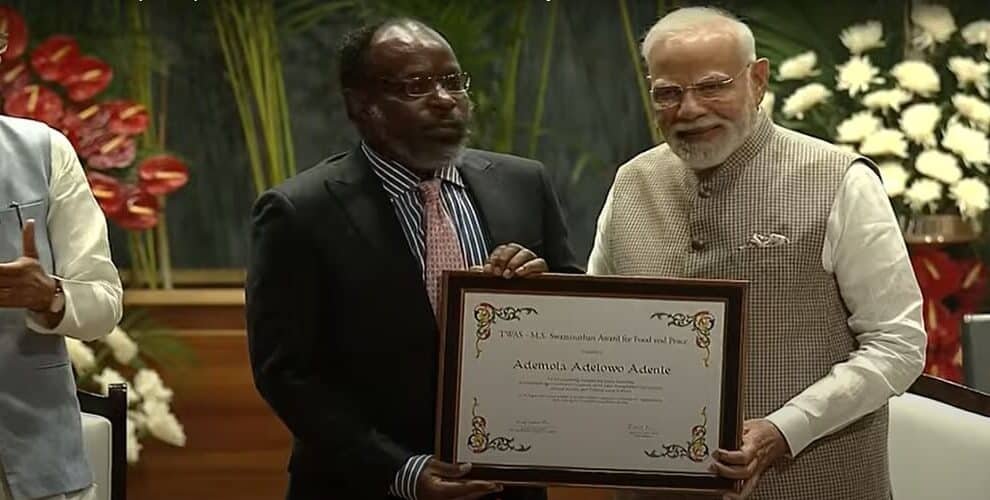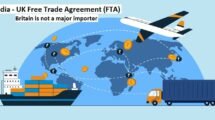Engage Stakeholders, Frame Strong Policies to Tackle Tariff Crisis: Prof. Ademola Adenle
Eminent Nigerian agricultural scientist and policymaker Prof. Ademola Adenle, winner of the first M.S. Swaminathan Annual Award for Food and Peace last week, has urged governments to engage all key stakeholders and frame effective policies to tackle the impact of unnecessary tariffs on developing nations.
In an interview with The Hindu, Prof. Adenle warned that without proper strategies in place, it would be “very, very difficult” to address the crisis. He stressed that governments must work to improve the quality of farmers’ skills and agricultural products so that dependence on imports can be reduced.
A global expert on Genetically Modified Organism (GMO) technology, Prof. Adenle said that strong scientific research, robust regulatory systems, and effective legal frameworks are essential to address public concerns over GM crops. Also Read | China expands its production of GM crops, taking steps to offset areas of GMO
Global Agriculture Under Pressure
Prof. Adenle highlighted major challenges facing global agriculture, including land degradation, climate change, poverty, and water scarcity. “Technology will play a crucial role in tackling these problems,” he said, adding that conflicts, wars, trade imbalances, and other factors are disrupting supply chains, leading to price hikes, shortages, and market instability.
He emphasised the need for sound policies at national, regional, and international levels to manage these crises effectively.
Trade Imbalance and Tariffs
Calling the recent U.S. tariff hikes under President Donald Trump a clear sign of trade imbalance, Prof. Adenle said tariffs on some countries had been raised by 20–50%. “If you don’t have policies to address the long-term effects of such tariffs, it becomes a crisis,” he warned. Retaliating with similar measures may not always be the best approach, he added.
He reiterated that improving the quality of agricultural produce within the country is key to discouraging imports.
Nutritional Security and Technology
For India, Prof. Adenle recommended the adoption of bio-fortified crops to improve nutritional quality. “These don’t always have to be genetically modified — improved traditional varieties can also help,” he said. With global food production expected to rise by 70% by 2050 to feed a growing population, he urged greater investment in research and development (R&D) to adopt modern technologies.
“If you’re not investing in R&D, competing with countries like China, the U.S., and European nations will be difficult,” he cautioned, noting their significant investments in AI, genome editing, biotechnology, and GMOs. Policies from UN agencies and global financial institutions, he said, must align with the national development goals of each country.
Balancing GMO Benefits and Risks
Prof. Adenle acknowledged that GMOs offer many advantages, such as reducing chemical use, but also pose concerns over biosafety, ecological impact, and market control. He stressed the importance of working with local researchers and having strict regulations in place.
He explained his F3 approach — Fibre, Feed, and Food — to gradually build trust in GM technology. The process begins with GM cotton for textiles (not for consumption), followed by GM animal feed (approved after rigorous safety checks), and finally GM food. “This step-by-step framework helps reassure farmers and consumers that GM products are safe for human consumption,” he said.


















Add Comment